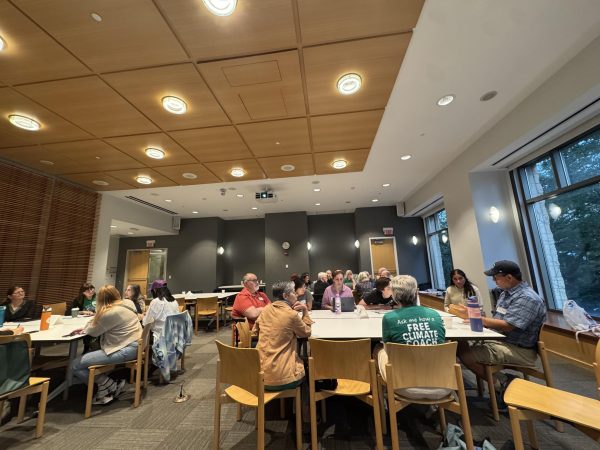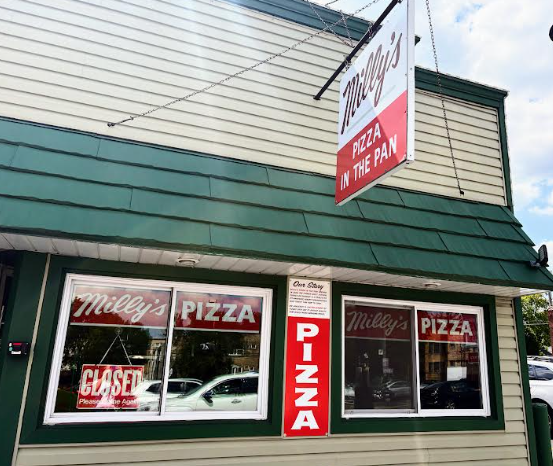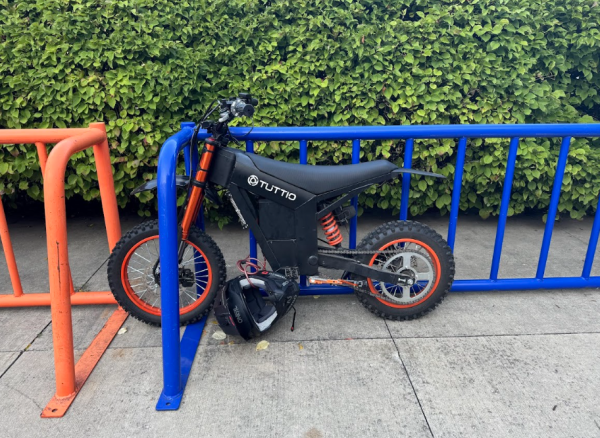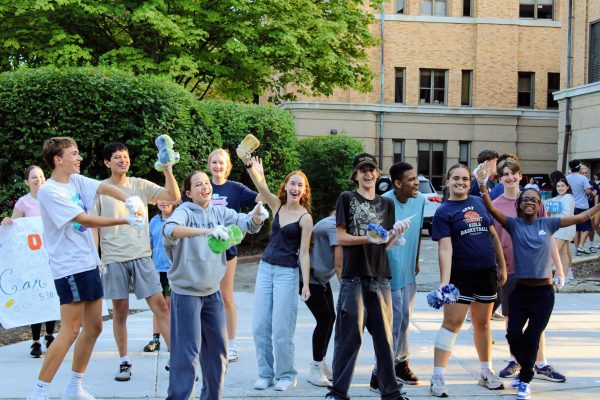OPRF students active in the workforce
Going into high school, students start to consider getting a job. It’s a time for exploring potential careers, getting experience in the world, and, well, getting paid.
To help students find jobs, OPRF has a Pre-Vocational Education Coordinator: Brian Dubina. He helps to narrow down what students are interested in, taking into account businesses and community jobs that are hiring. He said part of his process is learning about the students and what they might do well with, like crowds.
Part of his job is coordinating with counselors. Counselors may reach out to him about students looking for job opportunities. Students also contact him directly through posters around the school.
Junior Trinity Roy, who works at an Old Navy in Oak Brook, said she, for the most part, enjoys her job. “My coworkers are great, so they make it a good work environment,” she said.
“It’s very busy. A lot needs to get done every day,” said Lily Manning, a senior who works at Target in Melrose Park. “It’s usually pretty messy, so it’s kind of hard sometimes to juggle getting all my work done and cleaning up the store,” Manning said. She also said that her job provides college tuition benefits, which she is grateful for.
When it comes to dealing with school and work, students have mixed feelings. Roy has to consider commute time, getting home late, homework, and other things at home. “It can take 20 to 45 minutes to get there, depending on traffic. My shifts range from four to nine hours, so I sometimes get home at 9 or 10 at night,” she said. Roy said she still has homework when she gets home, and her teachers don’t offer very much lenience with assignments.
Manning has had a similar experience, as school hours can sometimes conflict with her work schedule. “I get home between 9 and 11 at night, which is difficult because I have 0 period gym that I need to be at,” Manning said. “I try to get most of my homework done during the school day, but it’s still a bit of a stretch,” she said.
“Businesses are really needing employees who have a lot of freedom, and students are busy…It’s a priority thing. In high school, sports (and clubs) take up a lot of time. You can’t do anything else and so you have to make a choice sometimes,” said Dubina. Colleges often look for students who do different activities outside of school, pressuring students even more to choose between sports/clubs and work. Dubina explained that “the key is to identify what value those activities/work experiences add (to your resume)…It’s different for every career, and up to the individual to choose which best represents who they are.”
At her job, Roy said she has learned how to handle customers and different types of people. “They throw a lot of curveballs at you, like customers sometimes get frustrated about things that are out of my control,” she said. She thinks it’s good for developing social skills and experience in the world outside of school. Manning said she has learned time management skills, how to behave in a professional environment, and money management skills. “I feel like once you get a job, you sometimes have a disposable income. It’s easy to spend a lot more than you used to. It’s taught me that, even if you’re not saving for anything specifically, you need to have a budget,” she said.
Aside from personal growth, having a job can provide insight for the future. Dubina said “having a job, you can think you like certain things until you actually do it. Making assumptions and then going into a career, you’re kind of guessing what it will be like.” He further said that studying a subject, and actually practicing it, are two very different things.
There are many for students to find a job, such as OPRFMomMail, an email subscription where students can find opportunities in the Oak Park and River Forest Area. Roy, for example, used a website called Indeed.com that can list and filter nearby jobs. For more information and discussion, reach out to Brian Dubina at [email protected].





